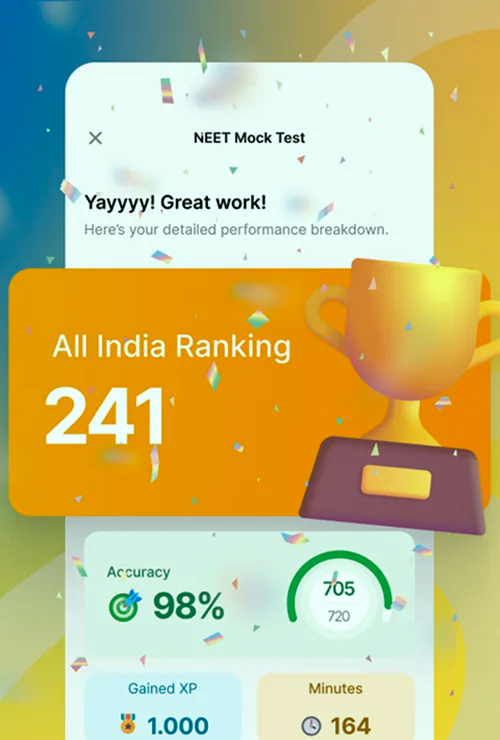General Information
Sikkim Manipal University (SMU) stands out distinctly. It's not a typical state or central university, nor a purely private one. Established in 1995, it's a pioneering example of a Public-Private Partnership (PPP) between the Government of Sikkim and the renowned Manipal Education and Medical Group (MEMG). This unique structure allows it to leverage government support and private sector expertise.
Located in Sikkim, its mission is deeply tied to providing quality, accessible higher education and healthcare services to the people of Sikkim and the wider Northeast region, while also attracting students from across India and abroad. It focuses primarily on Health Sciences and Technology/Engineering.
Key Recognitions:
Established through an Act of the Sikkim Legislative Assembly.
Recognized by the University Grants Commission (UGC) under Section 2(f).
Accredited by the National Assessment and Accreditation Council (NAAC) with an 'A' Grade.
Holds necessary approvals from professional bodies: NMC (Medical), AICTE (Engineering, Management), INC (Nursing), and potentially others relevant to its programs.
MCI Recogination
Recognized for 50 seats. Recognized for increase of seats from 50 to 100 in respect of the students admitted till 2016-17. Permitted for admission with increase in seats from 100 to 150 from 2021-22, Increase of 100 to 150 seats for 2021-22. Permitted of renewal of 100 to 150 seats for the academic year 2022-23. Permitted (2nd renewal) and 3rd batch for the Academic Year 2023 - 2024. Annual renewal permission granted for 150 MBBS seats for AY 2024-25
Campus Facilities
The Campuses: Tadong & Majitar
SMU operates primarily from two main campuses near Gangtok.
Tadong Campus (Gangtok): This campus, located closer to Gangtok city, primarily houses the Sikkim Manipal Institute of Medical Sciences (SMIMS) and the associated Central Referral Hospital (CRH). It's the hub for medical, nursing, and allied health education.
Majitar Campus (Rangpo): Situated further down towards the plains (near Rangpo), this large campus is home to the Sikkim Manipal Institute of Technology (SMIT), focusing on Engineering, Management, Basic Sciences, and Computer Applications.
Campus Vibe: Both campuses offer a unique experience of studying amidst the stunning Himalayan landscape. They feature modern infrastructure designed to provide a conducive learning environment, often praised for cleanliness and organization.
Infrastructure & Facilities (Across both campuses):
Dedicated Institutes: Separate, well-equipped buildings for SMIMS and SMIT.
Libraries: Well-stocked central libraries on both campuses, plus departmental resources, with extensive digital access.
Laboratories & Workshops: State-of-the-art labs supporting all branches of Engineering (CSE, IT, ECE, ME, Civil, EE), Medical Sciences (pre-clinical, para-clinical, simulation labs), Basic Sciences, and Nursing (skills labs). Workshops for engineering practicals are a key feature at SMIT.
Hospital Integration (Tadong): Direct integration of SMIMS with the Central Referral Hospital.
Learning Spaces: Modern classrooms, lecture halls, seminar rooms, auditoriums with A/V facilities.
Sports Complex: Excellent facilities at both campuses for various indoor and outdoor sports, including gyms, courts, and fields, often hosting inter-college events.
Residential Life: Extensive and well-maintained hostel facilities are a major component, especially at the somewhat remote Majitar campus.
Amenities: Food courts, cafes, banking facilities (ATMs), convenience stores, transportation between campuses/to city, robust security.
Hospital & Medical Facilities
Leading tertiary care hospital attached to the institution
Healthcare Hub: SMIMS & Central Referral Hospital (CRH)
Healthcare is a cornerstone of SMU, centered at the Tadong campus.
Medical College & Hospital: Yes, SMU runs the Sikkim Manipal Institute of Medical Sciences (SMIMS) and operates the large Central Referral Hospital (CRH) as its primary teaching hospital.
CRH Services: CRH is a major multi-specialty tertiary care hospital serving Sikkim and neighboring regions. It features:
Capacity: A significant bed strength (check current figures, often reported as 500+ beds).
Facilities: Comprehensive services including 24x7 Emergency & Trauma, Critical Care (ICUs), modern Operation Theatres, advanced diagnostics (including MRI/CT, well-equipped labs), Blood Bank, Pharmacy, and OPD/IPD across major clinical specialties.
Educational Role: CRH is the vital clinical training ground for SMU's students in MBBS, MD/MS, B.Sc/M.Sc Nursing, Physiotherapy (BPT/MPT), and Allied Health Sciences programs, providing essential hands-on experience in a regional referral hospital setting.
Fee Structure
State University Affordability
Fee Structure: Reflecting PPP Model & Quality
SMU's fees reflect its private partner's involvement and the quality infrastructure, generally higher than government institutions but potentially competitive within the national private education market. Fees can also differ based on quotas (Sikkim Govt Quota vs. Management/All India Quota).
Hostel & Mess
Campus Living: Mandatory & Well-Managed Hostels
Given the locations (especially Majitar), hostel accommodation is generally mandatory and well-catered for.
Accommodation: Extensive, separate, well-maintained hostel blocks for boys and girls are available on both campuses, offering various room types (often shared, potentially single for PGs/final years).
Amenities: Hostels typically provide essential furniture, 24/7 security, power backup, Wi-Fi connectivity (often managed), common rooms with TV/recreation, potentially indoor games, gyms, laundry services (paid), housekeeping, and resident wardens. Excellent medical support is available via CRH (Tadong) or campus clinics.
Dining: Multiple well-organized mess halls serve varied cuisine (catering to students from across India), focusing on hygiene and nutrition. Food courts/cafes offer additional options.
Cost: Hostel and mess fees are a significant additional annual expense. Depending on the campus, room sharing, and mess plan, expect costs to range roughly from ₹1,30,000 to ₹1,80,000 or more per year. Confirm the exact rates during admission.
Miscellaneous
Admissions & Career Launch: The SMU Pathway
Getting Through the Door:
MBBS / MD / MS: Admission is strictly based on qualifying ranks in NEET-UG or NEET-PG. Seat allotment for different quotas (Sikkim Govt, Management/All India, NRI) is managed through centralized counselling conducted usually by MCC (for Management/All India/NRI seats in Deemed/Central-related quotas - verify SMU's exact counselling body) and potentially Sikkim State Health Dept (for state quota seats).
B.Tech: Admission is primarily based on ranks in JEE (Main) or MET (Manipal Entrance Test). SMIT might also consider other scores or conduct its own process (SMITEE - check current status).
MBA: Based on scores from national tests like CAT/MAT/XAT/CMAT/GMAT or MET, followed by GD/PI.
Nursing / Allied Health / Other UG/PG: Admission is typically based on merit in the qualifying examination (Class 12/Graduation) and/or performance in university-conducted entrance tests or interviews. Check the SMU admissions website for specific program criteria.
Career Kickstart (Placements): SMU, particularly SMIT (Engineering/Management) and SMIMS (Nursing/Allied Health), has active placement cells.
SMIT Strengths: Engineering, especially CSE/IT, sees strong placement activity. Management (MBA/BBA) also has dedicated placement efforts.
SMIMS Strengths: Nursing and Allied Health graduates find opportunities in hospitals (including CRH) and healthcare organizations.
Recruiters: Attracts a mix of IT companies (TCS, Wipro, Infosys, Cognizant, Dell, Microsoft for top talent), core engineering firms, banks, consulting firms, healthcare providers, and potentially organizations relevant to the Northeast.
Salary Potential: Varies significantly. SMIT (B.Tech CSE/IT) generally reports good placements with average packages often in the ₹6 LPA to ₹9 LPA range, with potential for much higher offers. MBA placements are also decent. Nursing/Allied Health placements secure starting roles in the healthcare sector. MBBS/MD/MS graduates pursue clinical careers.
For International & NRI Aspirants
SMU, being part of the Manipal group known for its international outreach, has clear provisions for NRI/Foreign students.
Collage Images Gallery
Facilities & Campus Life
Well-equipped Library
Experienced Faculty
Computer Lab
Sports Activities
Heritage Campus
Frequently Asked Questions
Why Consult With Us?
- 15+ years of experience in medical education counseling
- 5000+ students successfully guided
- 50+ partner universities worldwide
- Free initial consultation with no obligation
















